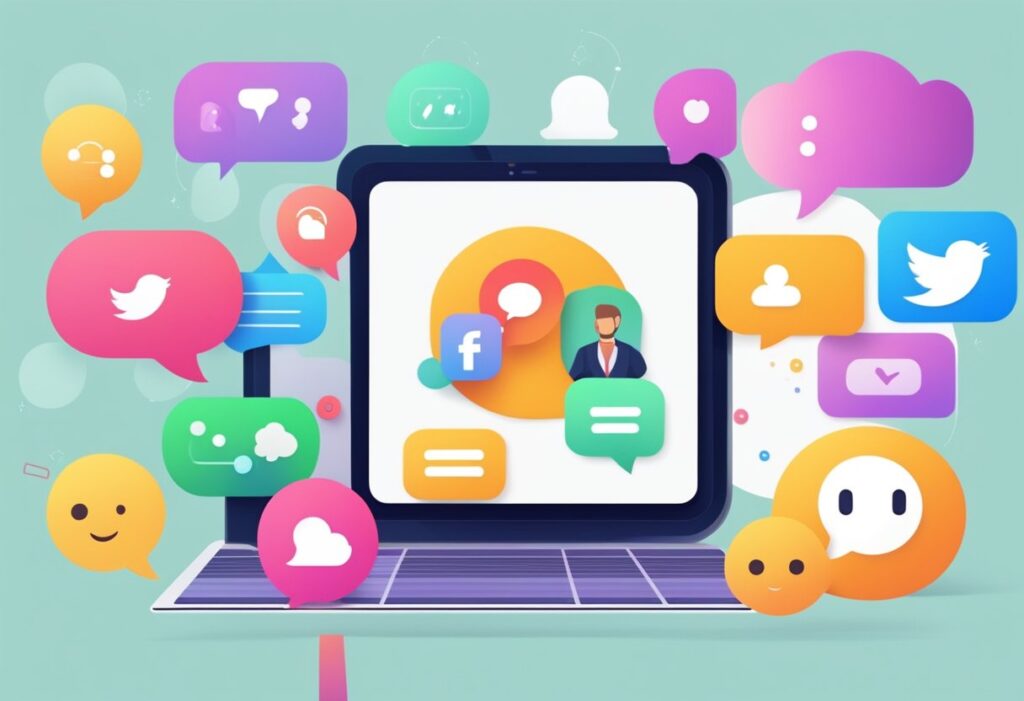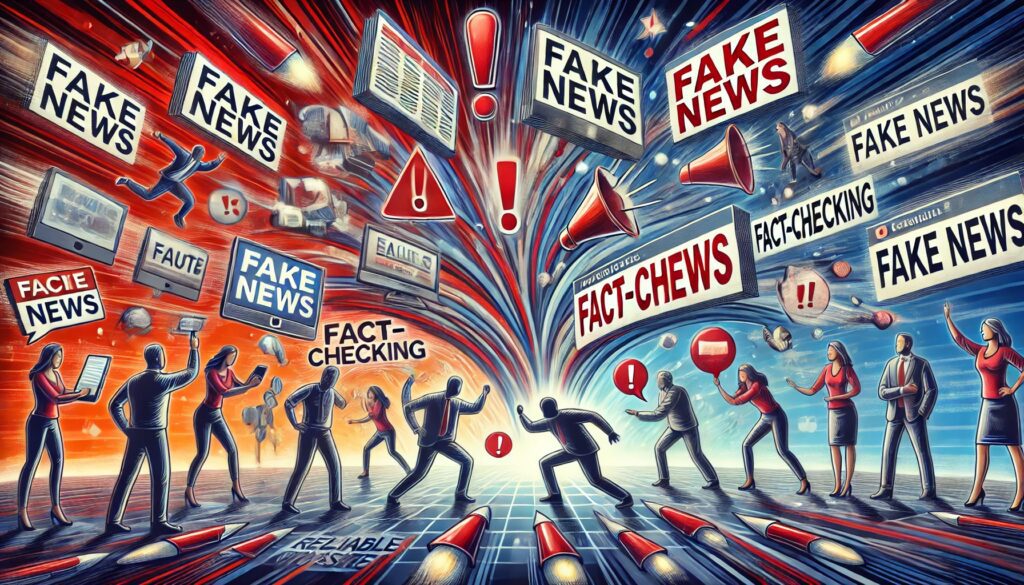
What if you could create a digital version of yourself, one that talks, thinks, and acts just like you? Sounds like science fiction, right? Thanks to advancements in AI and machine learning, this concept—called personality cloning—is now within reach for everyday users.
Let’s dive into the tools, platforms, and steps needed to explore this fascinating concept.
Understanding Personality Cloning
What Is Personality Cloning?
Personality cloning involves using AI to create a digital representation of a person’s unique behaviors, preferences, and communication styles.
Through data collection—like recordings, written content, and surveys—AI models learn to replicate traits and responses. This is not just about mimicking speech; it includes emotional tone, decision-making habits, and even a person’s quirks.
Why Is It Useful?
- Legacy Preservation: Capture loved ones’ personalities to revisit their thoughts or voices.
- Personal Assistants: Create a version of yourself to help manage tasks.
- Education & Entertainment: Develop characters for storytelling or teaching.
- Therapeutic Tools: Process emotions through conversations with a replicated persona.
Tools and Platforms for DIY Personality Cloning
1. Chatbot Development Platforms
- Replika: A user-friendly app for creating AI companions with custom personalities. Ideal for beginners.
- Character.ai: Advanced customization options allow you to define behavior and tone.
- Hugging Face: For developers comfortable coding, you can train AI models like GPT on your data.
2. Voice Cloning Software
- Descript: Clone your voice by recording just a few samples. Perfect for podcasters or creators.
- ElevenLabs: Offers ultra-realistic voice cloning and emotional intonation.
- Respeecher: Advanced voice cloning software used in media production.
3. Writing Style Analyzers
- Grammarly Insights: Analyze writing patterns to understand tone and word choices.
- Jasper AI: Use content samples to generate text that mimics your unique style.
4. Sentiment Analysis Tools
- IBM Watson Tone Analyzer: Great for understanding emotional nuances in communication.
- Crystal Knows: Offers personality insights based on language and behavior.
Step-by-Step Guide: Building Your Digital Twin

Step 1: Collect and Organize Data
Begin by gathering voice recordings, text messages, emails, and videos. This data teaches the AI about your personality, tone, and expressions.
Step 2: Choose Your Platform
Select a platform that suits your technical skills:
- For Beginners: Replika or ElevenLabs (minimal coding required).
- For Advanced Users: Use GPT-based APIs on Hugging Face.
Step 3: Train the AI
- Upload your collected data to the tool.
- Fine-tune it to match your personality traits.
- Test responses for authenticity and accuracy.
Step 4: Add a Voice or Avatar
Pair your personality model with voice cloning software for an authentic feel. Some tools also offer 3D avatar creation for a more immersive experience.
Step 5: Interact and Refine
Test the model by engaging in conversations. Adjust parameters to make responses more natural or emotionally resonant.
Case Study: Digital Twin for Productivity
John, a marketing professional, wanted a digital assistant with his communication style.
- He used Jasper AI to train a text-based model on his emails and marketing content.
- Combined it with Descript for a cloned voice.
- The result? A virtual John that drafts emails, pitches, and content ideas, saving him hours weekly.
Case Study: Preserving a Family Legacy
Anna, a 35-year-old tech enthusiast, created a digital version of her grandmother to preserve her stories for future generations.
- She recorded hours of conversations with her grandmother, focusing on family history and cultural insights.
- Using ElevenLabs for voice cloning and GPT for text-based responses, Anna built a digital storyteller.
- The project became a family treasure, allowing younger members to “talk” to their great-grandmother and learn about their heritage.
Navigating Ethical Considerations in Personality Cloning
While personality cloning is exciting, it brings significant ethical and emotional implications. Understanding these challenges can help ensure responsible and thoughtful use of this technology.
Privacy and Consent
The Importance of Permission
Cloning someone’s personality requires access to sensitive data. Without consent, this can lead to ethical violations or even legal trouble.
For example, replicating a loved one who has passed away may seem like a touching tribute, but if their permission wasn’t explicitly granted, it raises concerns about posthumous privacy.
How to Protect Yourself
- Always obtain clear consent when gathering personal data.
- Store information in secure environments using encryption.
- Use platforms with strong data protection policies, like those compliant with GDPR or CCPA regulations.
Emotional Challenges
The Impact on Grief and Memory
Using personality cloning to simulate conversations with a deceased loved one can be comforting—or unsettling. Psychologists caution that these tools could hinder emotional closure.
For instance, a digital twin might inadvertently misrepresent the loved one’s responses, leading to emotional confusion or disappointment.
Balancing Use and Impact
- Use the tool as a memory aid, not a replacement for real relationships.
- Engage with these digital versions sparingly to maintain emotional well-being.
Ethical Cloning in Public Figures
Replicating celebrities or historical figures raises unique questions. While this can enhance educational experiences, misuse could result in defamation or unauthorized endorsements.
Best Practices for Public Figures
- Ensure adherence to copyright laws and image rights agreements.
- Clearly label cloned personalities as simulations, not real entities.
Advanced Tools for Emotional Depth in Digital Twins
While basic tools can mimic tone and language, some platforms push boundaries by incorporating emotional intelligence and deep personalization.
Emotionally Intelligent AI
How It Works
Advanced AI can analyze sentiment and context to respond in emotionally appropriate ways. For example:
- OpenAI’s GPT models can simulate empathy or excitement based on user inputs.
- IBM Watson Personality Insights maps emotional patterns to create a realistic personality.
Adding Empathy and Nuance
- Use emotionally tagged datasets during training to teach your AI when to express concern or enthusiasm.
- Implement real-time sentiment analysis to adjust responses dynamically.
Potential Pitfalls of Personality Cloning
Over-reliance on Digital Twins
Relying too much on AI versions of people can weaken genuine human connections. These tools should complement relationships, not replace them.
Data Misuse Risks
Unsecured or poorly managed data could lead to identity theft or exploitation. For example, cloned voices might be used for fraud if safeguards aren’t in place.
Societal Impact
As personality cloning grows, it could blur the line between authenticity and simulation, leading to mistrust in digital interactions.
Technical Advancements Powering Personality Cloning
Behind the captivating idea of personality cloning lies a robust technological framework. These advancements make it possible for everyday users to access tools that were once reserved for advanced researchers or developers.
The AI Models Driving Personality Cloning
Natural Language Processing (NLP)
AI’s ability to understand and generate human-like text depends on NLP models like:
- GPT (Generative Pre-trained Transformer): Powers tools like ChatGPT, creating conversational agents that can mimic tone and thought processes.
- BERT (Bidirectional Encoder Representations from Transformers): Excels at context comprehension, improving realistic response generation.
These models analyze millions of conversational patterns and adapt to a specific user’s style based on the data provided.
Generative Adversarial Networks (GANs)
GANs are used in:
- Voice cloning: Replicating the pitch, tone, and rhythm of a person’s voice.
- Avatar creation: Generating lifelike digital images or animations based on a person’s likeness.
GANs enable high realism in both visual and auditory applications, allowing seamless personality replication.
Key Technologies Enabling Realistic Digital Twins
Voice Cloning and Speech Synthesis
Voice cloning combines spectrogram analysis (visualizing sound frequencies) with AI models trained to replicate individual vocal patterns.
- Tools like Respeecher and ElevenLabs achieve this with just a few minutes of audio.
- Emotional nuances, like laughter or excitement, are added by adjusting pitch and cadence.
Sentiment Analysis
AI uses emotionally intelligent algorithms to identify and replicate emotional context.
- By analyzing text inputs for sentiment, tools like IBM Watson Tone Analyzer enable digital twins to respond empathetically.
- This technology is critical for creating AI that feels “human.”
Reinforcement Learning
To ensure accurate and evolving responses, reinforcement learning algorithms adapt models based on feedback:
- If an AI clone’s response is off-base, users can correct it, teaching the system over time.
- This iterative process refines accuracy and enhances personalization.
Cloud-Based Computing
Accessible AI relies on cloud computing platforms to handle complex data processing:
- Google Cloud AI and Amazon AWS AI provide scalable infrastructure for training and running personality models.
- These platforms ensure everyday users don’t need expensive hardware to explore personality cloning.
Practical Applications for Businesses
Beyond personal use, personality cloning offers businesses innovative ways to engage customers, train employees, and improve productivity.
1. Personalized Customer Service
AI Representatives with a Human Touch
Companies can create virtual brand ambassadors who reflect their values and tone, providing more engaging customer support.
- Example: An AI with your CEO’s personality could welcome new clients or explain company values.
- Tool to Try: Character.ai for chatbot personality development.
2. Employee Training Simulations
Roleplay Without Pressure
Businesses can use AI clones of trainers or top performers to create lifelike training environments.
- Example: Employees practice difficult conversations with an AI that mimics a challenging client or manager.
- Platform Suggestion: IBM Watson Assistant for structured simulations.
3. Content Creation and Marketing
Scaled, Consistent Messaging
Marketers can create digital assistants that replicate their personal style to produce:
- Social media posts.
- Personalized email campaigns.
- Blog drafts with specific brand tones.
- Tools: Jasper AI and Descript for integrated writing and voice.
4. Entertainment and Media
Digital Performers and Hosts
Brands can develop AI versions of celebrities or historical figures to host events, podcasts, or virtual concerts.
- Example: AI recreations of artists performing posthumously, powered by Respeecher and GAN technologies.
5. Healthcare and Therapy
Support Tools for Emotional Well-being
AI personalities can be designed for therapeutic roles, simulating a supportive friend or guide for users.
- These tools can aid in managing loneliness, anxiety, or grief by providing companionship and insights.
- Notable Tool: Woebot, an emotionally intelligent chatbot for mental health.
Case Study: AI in Education and Training
A university in the UK launched a project replicating historical figures’ personalities to make learning more interactive.
- They used AI to recreate the conversational styles of Shakespeare and Einstein.
- Students engaged with these digital personalities to explore complex subjects in an entertaining way.
- The initiative led to a 40% increase in student engagement.
Future Trends in Personality Cloning
As AI technology evolves, personality cloning is poised to become even more powerful, accessible, and integrated into everyday life. Here’s a look at what’s on the horizon:
Hyper-Personalization and AI Assistants
The Next Generation of Personal AI
AI assistants will go beyond generic interactions to reflect individual quirks, humor, and preferences.
- Imagine an assistant that knows your morning routine, remembers past conversations, and shares jokes in your style.
- Tools like OpenAI’s API are already enabling developers to create these bespoke assistants.
Virtual Influencers
Brands are expected to develop AI influencers modeled after real personalities or entirely fictional ones. These clones will create content, engage with audiences, and endorse products, revolutionizing digital marketing.
Lifelong Personality Evolution
AI That Grows With You
Future personality clones may evolve as you do.
- By continuously updating their training data, these digital versions could reflect changes in your life, thoughts, and preferences.
- Platforms may integrate machine learning pipelines that periodically refresh datasets to ensure the clone remains relevant.
Real-Time Adaptation
Advanced AI will analyze real-time inputs to modify tone or responses, creating conversations that feel even more natural.
Immersive Applications with AR/VR
AI in Virtual Spaces
With augmented and virtual reality, personality clones could populate immersive environments:
- Holographic AI assistants could appear in your living room.
- Fully interactive avatars might serve as educators, fitness coaches, or companions in VR worlds like the metaverse.
Digital Time Capsules
Create a digital version of yourself to be “unlocked” decades later, preserving your essence for future generations.
Ethical AI Standards
Regulating the Cloning Process
As the tech matures, governments and organizations will likely establish AI ethics frameworks to ensure responsible use. Expect standards on:
- Consent protocols for personality data collection.
- Transparency requirements, such as labeling AI clones in public settings.
- Safeguards against misuse, including impersonation and fraud.
Public Awareness Campaigns
Efforts to educate the public on the ethical and societal implications of personality cloning are expected to grow, ensuring users are informed about potential risks and responsibilities.
Best Practices for DIY Enthusiasts
To safely and effectively explore personality cloning, keep these best practices in mind:
1. Start Small and Test Thoroughly
Begin with tools like Replika or ElevenLabs for small-scale projects before diving into complex platforms like Hugging Face.
- Test responses frequently and tweak settings to refine the clone’s accuracy.
2. Focus on Quality Data
The more diverse and authentic your data, the better your clone will perform. Include a mix of:
- Conversations or voice recordings.
- Texts that show different moods or contexts.
3. Protect Your Data
Use platforms with robust encryption and privacy controls. Regularly back up your datasets in secure locations.
4. Avoid Over-Reliance
Remember that AI clones are tools, not people. Balance their use with meaningful real-world interactions.
5. Stay Updated on AI Trends
Personality cloning is rapidly evolving. Subscribe to industry newsletters, follow tech blogs, and join forums to stay informed about the latest tools and practices.
A Final Thought
Personality cloning is more than a novelty—it’s a bridge between human uniqueness and digital innovation. By approaching this technology with curiosity and responsibility, anyone can create digital replicas that not only mirror themselves but enrich lives in unexpected ways.
FAQs
Is it possible to create a clone of someone who has passed away?
Yes, it’s technically possible if you have access to sufficient data, like recorded interviews, letters, or other personal content.
However, this raises ethical considerations. Many experts recommend doing so only if explicit permission was given before their passing.
Example: Some families have created conversational AI memorials of loved ones to preserve their stories and voices for future generations.
Can personality clones understand emotions?
Yes, many tools incorporate sentiment analysis to replicate emotional nuances. For example, AI trained with emotionally tagged data can simulate empathy, humor, or frustration based on the context of a conversation.
Example: A personality clone could recognize a sad message like “I had a tough day” and respond with encouragement, just as you might.
Are these clones always accurate?
Not entirely. While AI tools are impressive, they may misinterpret sarcasm, cultural nuances, or unusual word choices. Accuracy improves with better data and fine-tuning but isn’t guaranteed.
Example: A clone might mistakenly respond to “That’s just great” as excitement instead of sarcasm. Testing and adjusting its responses can help.
What are the risks of personality cloning?
The main risks include:
- Data misuse: Without secure storage, personal information could be hacked.
- Impersonation: Clones might be used fraudulently if they resemble you too closely.
- Emotional impact: Relying on AI replicas could affect personal relationships or complicate grief.
Example: A voice clone could be used in a phone scam without your consent. To prevent this, use reputable tools with strict privacy policies.
Do I need coding skills to create a personality clone?
Not necessarily. Many beginner-friendly platforms like Replika and Descript don’t require coding knowledge. However, for more advanced clones with deeper customization, coding with tools like Hugging Face or OpenAI APIs is helpful.
Example: A non-technical user could use Replika to create a chatbot-like personality, while a developer might build a clone that integrates with smart home systems.
Can I monetize a personality clone?
Yes! Businesses and individuals can monetize personality clones for content creation, brand engagement, or entertainment.
Example: Virtual influencers like Lil Miquela have millions of followers and generate revenue through brand partnerships. Similarly, an AI replica of your personality could write blogs, generate videos, or offer coaching services.
Are there free tools to try personality cloning?
Yes, several tools offer free trials or basic features:
- Replika: Free for basic conversational AI with optional upgrades.
- Hugging Face: Open-source models for tech-savvy users.
- Descript: Free for limited voice cloning features.
Example: Start with Replika to test personality-based chats, then move to advanced tools if you want more control or realism.
How do I train the AI to match my personality?
Training involves uploading samples of your voice, text, or behavior for the AI to learn. The more diverse and high-quality your data, the better the results.
Steps:
- Collect emails, messages, or audio recordings that reflect your personality.
- Use tools like ElevenLabs or OpenAI’s GPT API to input the data.
- Test and tweak the AI’s responses for alignment with your tone and quirks.
Example: If you’re playful in your texts, ensure the AI captures your humor by including jokes and emojis in the training set.
Can I combine multiple personalities into one clone?
Yes, you can blend data from different individuals or personas to create hybrid clones. This approach is often used in entertainment or brand building.
Example: You could merge the creativity of your favorite writer with your personal tone to create a content assistant that drafts compelling blogs.
Are there risks in blending personalities?
Combining multiple datasets can result in a disjointed or confusing clone. The AI may struggle to balance conflicting traits or tones. Careful testing and refinement are necessary to create coherence.
Example: If one data set reflects formality and another is casual, the AI might switch between tones unpredictably, creating unnatural conversations.
Resources
Beginner-Friendly Tools
Replika
- Purpose: Build conversational AI with customizable personalities.
- Best For: Simple clones for companionship or fun.
- Features: Easy setup, emotional tone adjustments, and a mobile app.
- Pricing: Free with paid upgrades for advanced features.
- Website: Replika
Descript
- Purpose: Clone voices for podcasts, videos, or personal projects.
- Best For: Voice replication with minimal technical effort.
- Features: Overdub tool, video editing, and audio transcription.
- Pricing: Free trial; $12–$24/month for full features.
- Website: Descript
ElevenLabs
- Purpose: Realistic voice cloning and text-to-speech.
- Best For: High-quality audio projects with emotional intonation.
- Features: Multilingual support, adjustable speaking styles.
- Pricing: Free trial; plans start at $5/month.
- Website: ElevenLabs
Intermediate Platforms
ChatGPT by OpenAI
- Purpose: Text-based personality cloning and conversational AI.
- Best For: Mimicking writing styles, tone, and conversation habits.
- Features: Chat-based interface, customizable prompt engineering.
- Pricing: Free basic use; $20/month for GPT-4.
- Website: OpenAI
Hugging Face
- Purpose: Open-source models for advanced text and speech AI.
- Best For: Developers who want full control over personality cloning.
- Features: Pre-trained models like GPT-2, BERT, and Whisper.
- Pricing: Free with paid cloud hosting options.
- Website: Hugging Face
Jasper AI
- Purpose: AI writing assistant capable of replicating tone and style.
- Best For: Content creators and marketers.
- Features: Templates for emails, blogs, and social media.
- Pricing: Starts at $49/month.
- Website: Jasper AI
Advanced Tools for Developers
OpenAI API
- Purpose: Train custom AI models for text and conversational cloning.
- Best For: Advanced users building tailored digital twins.
- Features: Access to GPT models, adjustable parameters.
- Pricing: Pay-as-you-go based on usage.
- Website: OpenAI API
IBM Watson Personality Insights
- Purpose: Analyze and model personality traits for deeper customization.
- Best For: Businesses or researchers creating detailed clones.
- Features: Text-based personality profiling, tone mapping.
- Pricing: Free tier available; paid plans for advanced use.
- Website: IBM Watson
Google Cloud AI
- Purpose: Cloud-based infrastructure for training and deploying AI.
- Best For: Scaling personality clones for business use.
- Features: Pre-trained models, APIs for NLP and speech synthesis.
- Pricing: Pay-as-you-go model.
- Website: Google Cloud AI
Educational Resources
Coursera: AI for Everyone
- Best For: Understanding the basics of AI and personality cloning.
- Instructor: Andrew Ng, a leading AI expert.
- Pricing: Free with paid certificates.
- Website: AI for Everyone
Fast.ai
- Best For: Learning how to develop AI clones from scratch.
- Features: Free deep learning courses, coding tutorials, and projects.
- Website: Fast.ai
OpenAI Cookbook
- Best For: Developers who want to experiment with GPT-based projects.
- Features: Code samples, guides, and implementation tips.
- Website: OpenAI Cookbook
Ethical and Security Resources
AI Ethics Guidelines by UNESCO
- Purpose: Learn best practices for responsible AI use.
- Best For: Understanding the ethical landscape of cloning.
- Website: UNESCO AI Ethics
Electronic Frontier Foundation (EFF)
- Purpose: Stay informed about data privacy and AI rights.
- Best For: Individuals concerned with protecting their data.
- Website: EFF
AI Incident Database
- Purpose: Explore documented AI misuse cases to avoid pitfalls.
- Best For: Learning from real-world examples.
- Website: AI Incident Database
Communities and Forums
Reddit: r/MachineLearning
- Purpose: Engage with AI enthusiasts and learn from their projects.
- Best For: Inspiration and troubleshooting.
- Website: r/MachineLearning
GitHub AI Projects
- Purpose: Explore open-source projects for personality cloning.
- Best For: Developers looking for hands-on experience.
- Website: GitHub




